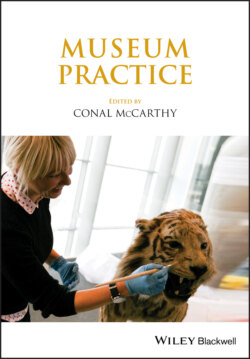Читать книгу Museum Practice - Группа авторов - Страница 87
Analysis and discussion: key ideas from the network workshops
ОглавлениеIn this section, we explore the key findings from each of the workshops and identify the patterns that emerged. Throughout the process, participants used the workshop themes – social engagement; transparency; shared guardianship of collections; moving beyond canonicity; and sustainability – to raise ethics issues at the core of what and whom museums are for. Overarching threads of discussion called for: a radical overhaul of museums in terms of structure, purpose, and values; embedding social responsibility as a core value alongside care and research of collections; and collaborative action across the sector in order to meet the above aims. The group was critical of UK museums’ longstanding silence on ethical issues beyond the use of codes; in fact, many participants agreed that ethics codes are used as a justification for museums to avoid more complex ethics discussions, particularly around social responsibility. They welcomed evidence that aspirations such as shared guardianship can be translated into practice, while acknowledging that this was not easy work and required museums coming to terms with complexity and uncertainty.
Members of the network characterized ethics as an expensive (in terms of human resources) but powerful tool in its capacity to function as a set of lived values which connects ideas with actions and consequences. Thus, self-reflective practice and long-term collaborative relationships with communities, on which the new museum ethics depends, each require an additional investment in time. It is not enough to “bolt on” the new museum ethics to current museum structures because these structures are fundamentally undemocratic, underpinned by outdated values and hierarchies that perpetuate inequalities. Network participants voiced their concern that museums’ focus on ownership of “property” (collections) encourages work in isolation from their communities, at the expense of developing relations among people. They also embraced interdisciplinary articulations of values and principles; for example, Article 27 of the Universal Declaration of Human Rights (United Nations 1948) was cited as a strongly worded, inalienable principle and persuasive statement of intent (Anderson 2012). Similarly, the Physicians Charter and the Hippocratic Oath each articulates principles that necessitate action. Network participants also identified empathy as being as important as legislation in fostering social engagement. These threads of discussion form the backdrop to specific issues debated in the respective workshops, which we consider next.
